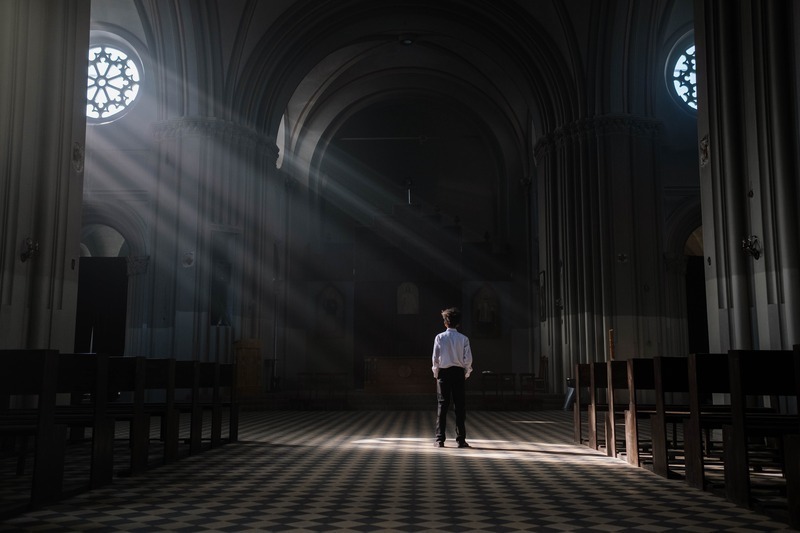
According to a recent article in The Wall Street Journal, Americans aged 18 to 25 are becoming noticeably more likely to believe in God or a higher power. A third of this age group, up from a quarter in 2021, currently proclaims such beliefs, according to statistics from the Springtide Research Institute.
The COVID-19 pandemic, which has caused people to seek comfort in something greater than themselves after years of loss and loneliness, is blamed by theologians, church leaders, and young people for this growth.
Rise in Youth Belief in Higher Power Linked to Pandemic and Healing
The increase in religious belief among young adults is consistent with studies showing how religion positively affects public health. According to a 2020 study by the School of Public Health at Harvard University, women who regularly attend religious services have a 68% lower risk of dying from "deaths of despair," such as suicide, drug overdose, and alcohol poisoning. Under the same circumstances, men's risk is reduced by 33%.
According to New York Post, Elite economists noted a connection between variations in religious attendance and variations in fatalities from despair in a working paper published by the National Bureau of Economic Research earlier this year. These catastrophic outcomes increased sharply in states that suffered significant declines in religious attendance.
The 12-step program, which places a significant focus on faith in a higher power, is one of the most effective methods for recovering from drug and alcohol addiction. It also clarifies this relationship between faith in a higher power and well-being.
Among wealthy countries, the United States is still relatively religious despite a general trend toward secularization. According to the associate dean of Pitzer College and professor Phil Zuckerman, 55% of Americans pray daily, compared to 22% of Europeans on average. The increase in young people's faith as a tool of recovery and overcoming the difficulties of the pandemic era points to a revival of faith.
Also Read: Pandemic Leads to Increased Number of Americans Leaving Church Behind: Who Are These Americans?
Asbury Phenomenon Ignites Multi-Generational Revival, Offering New Hope for Gen Z
As statistics continue to show alarming rates of anxiety, depression, and suicide among this generation, the Asbury movement offers a way of hope and healing through Jesus Christ. In the article shared in Premier Christianity, this movement has come to be known as the "Asbury Phenomenon," a multi-generational revival that has taken root, fulfilling numerous prophecies about a new move of God and providing a brighter future for Generation Z.
On the Asbury campus, where students prioritized God's presence over their own schedules, the revival got its start. The movement was started by a group of 20 tenacious students who persisted on campus after others departed; it quickly grew and helped put Asbury on the map of the world. The gathering was distinguished by its understated nature, with no stirring sermon, anointed pastor, or worship leader present—just student-led worship that concentrated on God's presence.
According to the Baptist Press, the chaplain and dean of student ministries approved of the event's continuation after observing the students' hunger and the tangible presence of God. The mood of worship was maintained as more students enrolled, drawing visitors from all around the world. This made others wonder what might happen if people imitated Asbury and stayed longer in worship in other churches and educational institutions.
Although untrained and unpolished, their sincerity and passionate devotion distinguished the students' worship. As the movement grew, tales of young people worldwide vowing to worship until Jesus' return began to surface. God heard the cries of the "Bartimaeus Generation" from Mark 10:48, and He intervened.
Moments of confession, salvation, consecration, and profound generosity have peppered the lengthy worship services at Asbury. Many testimonies shared the impact of God's presence and tales of healing, restored faith, and repentance. Some have questioned the credibility of the Asbury revival, but the emphasis should be on praising and encouraging the younger generation's search for a fresh encounter with God.
The Decline in Confession Attendance Prompts Church Leaders to Reevaluate Approach
According to the article shared in My Herald Review, church authorities are struggling to comprehend why there has been a significant decline in the number of Americans going to confession in recent years. According to a recent survey, only 37% of American Catholics go to confession at least once a year, a sharp decline from the previous 80% figure.
Father David Michael Moses received 1,167 confessions over 65 hours during Holy Week, highlighting the value of confession in offering faithful support and hope. The so-called "confession crisis" has been associated with an increase in Catholics who no longer consider confession important to their religion. Many people have abandoned traditional Christian doctrine, especially those that are in opposition to the sexual revolution.
Father Moses thinks priests need to modify their methods and stress the importance of the Gospel and confession as essential tenets of the Catholic faith. He contends that the sacrament of reconciliation needs to get new attention to regain its relevance and draw more Catholics to partake.
Church officials must consider the broader ramifications for the Catholic community as they struggle with this downturn. The decline in confession attendance may result from changing perspectives on religion and spirituality and a growing gap between conventional wisdom and the values of the modern world.
Related Article: Asbury University's 'No Celebrities Except Jesus' Policy Safeguards, Sustains Campus Revival

















